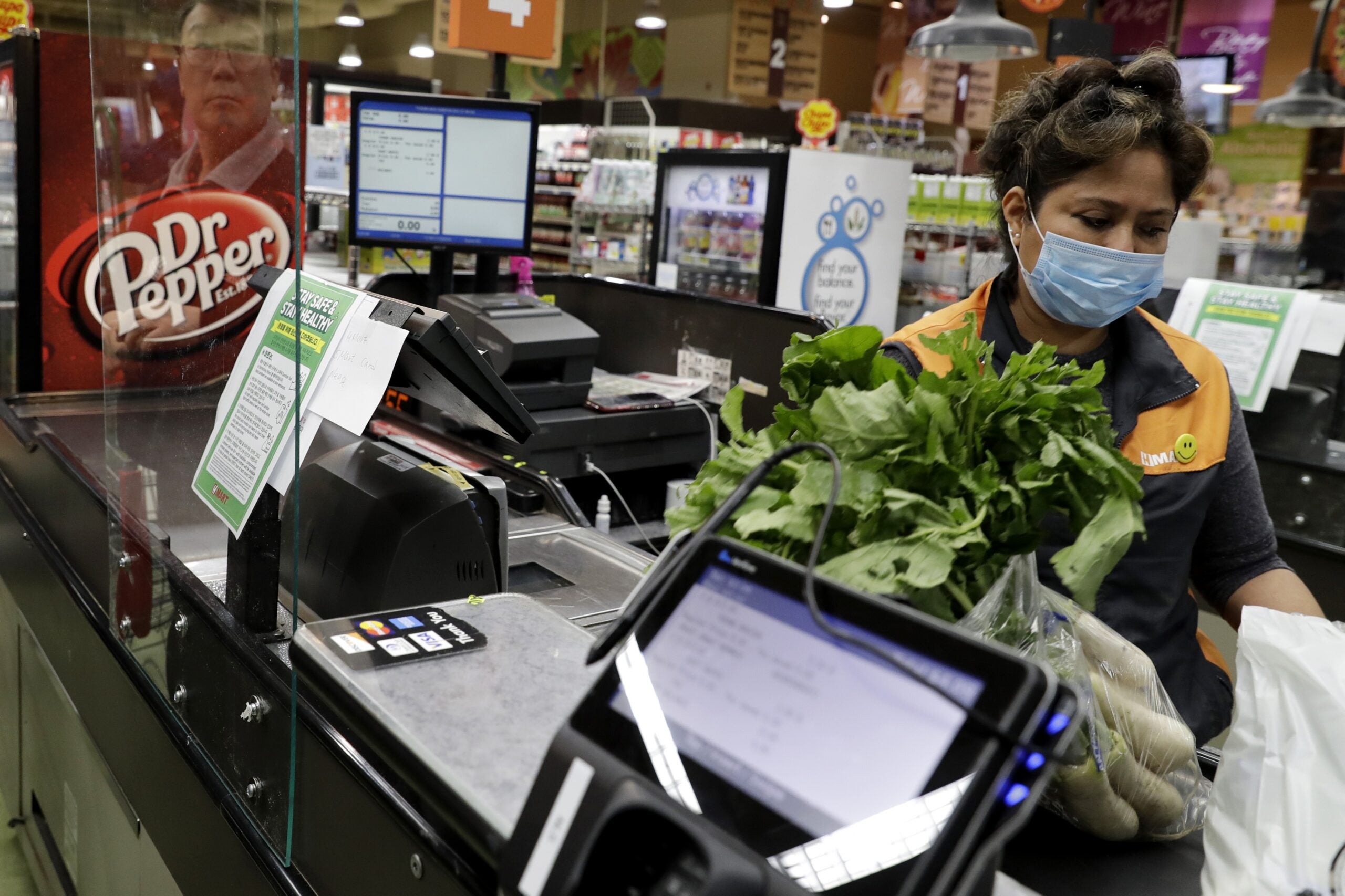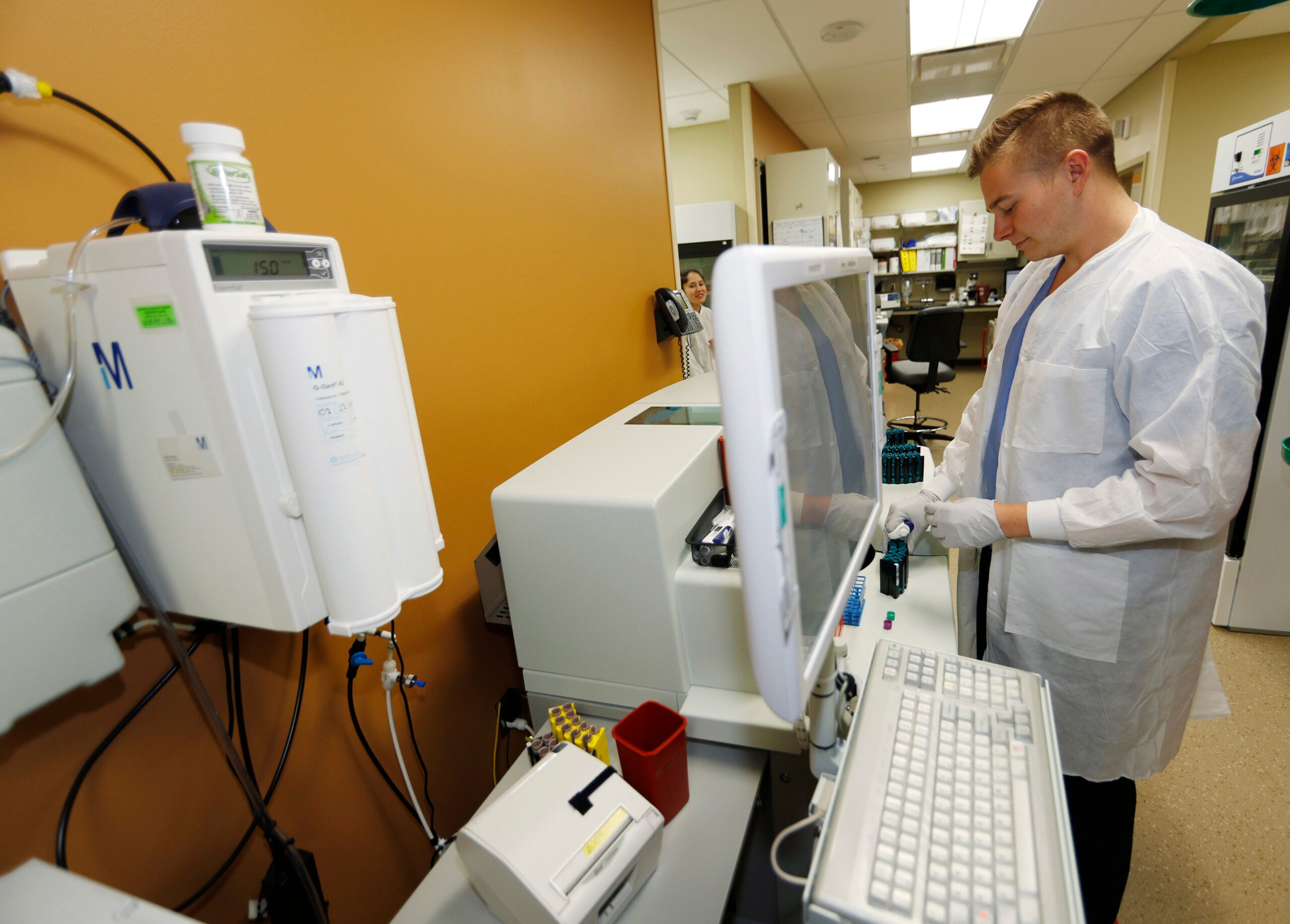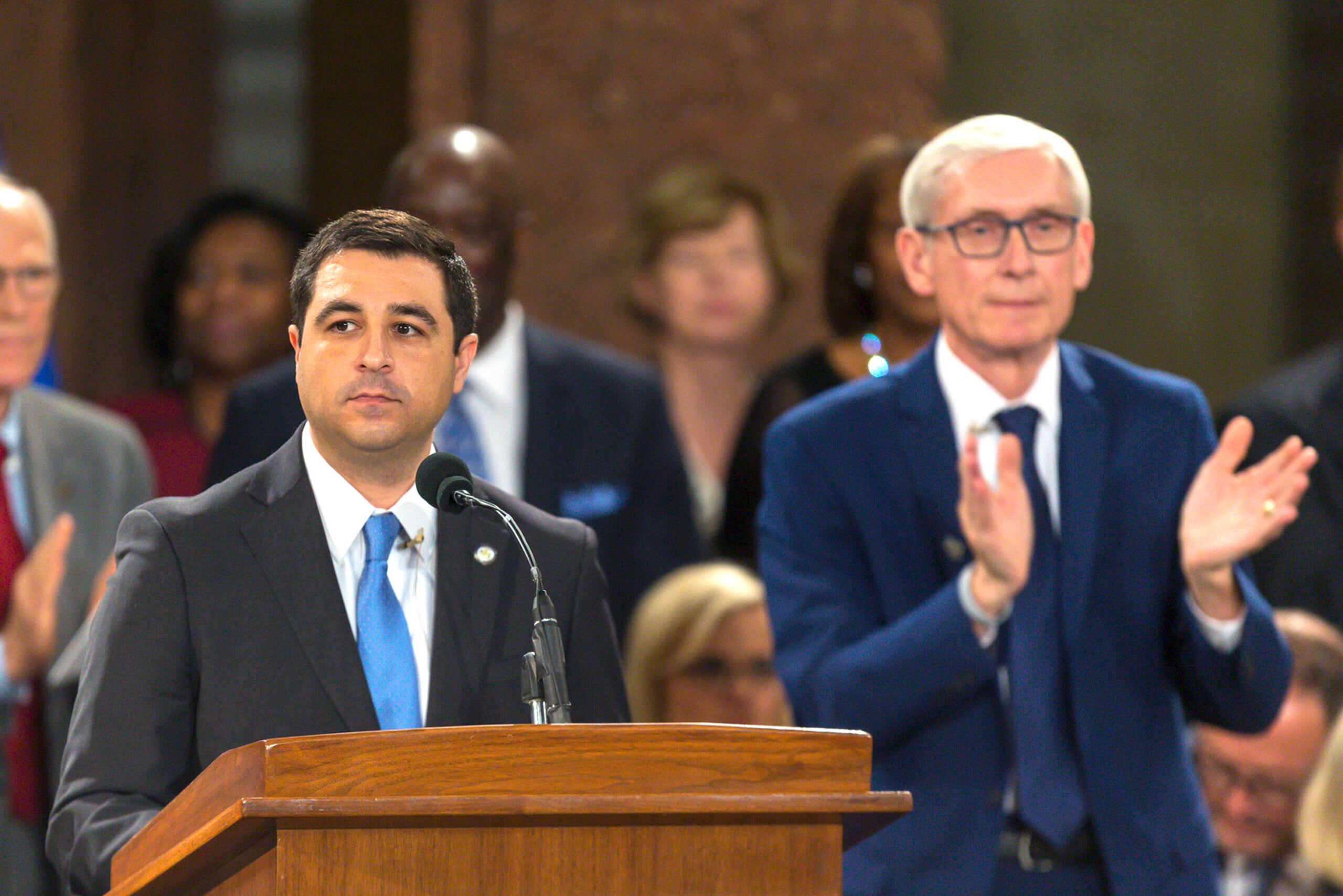Discussions are underway in the state Capitol to avoid the loss of around $50 million in federal food assistance in May after the Wisconsin Supreme Court struck down Gov. Tony Evers’ COVID-19 emergency order on March 31.
During the COVID-19 pandemic, the U.S. Department of Agriculture’s Supplemental Nutrition Assistance Program has allocated additional emergency aid to states that have issued COVID-19 emergency orders.
Because the state’s high court struck down Wisconsin’s existing emergency order, it’s estimated that residents could lose around $50 million in additional aid in May if the Republican-controlled state Legislature and Democratic governor can’t agree on a way to reinstate it.
Stay informed on the latest news
Sign up for WPR’s email newsletter.
In January, Republican leadership in the state Senate introduced a compromise COVID-19 bill that would have extended the state’s pandemic emergency order, which was initially supported by Evers. But the bill faced opposition in the Republican-controlled state Assembly, which led to amendments and a veto from the governor.
Evers then issued an executive emergency order, which kept the federal food assistance intact. On Wednesday, the conservative majority on the Wisconsin Supreme Court struck that order down, ruling that Evers had overstepped his authority under state law.
In a statement emailed to WPR, Evers’ spokesperson Britt Cudaback pointed the blame at Republicans.
“The governor’s public health emergency would still be in place today, thereby ensuring our state would continue to receive these funds, if Republican allies had not filed a lawsuit — that Speaker Vos and legislative Republicans supported — which has now ultimately resulted in the governor being unable to declare a public health emergency in the midst of an ongoing pandemic,” said Cudaback.
Assembly Speaker Robin Vos, R-Rochester, told the Milwaukee Journal Sentinel that the funding wouldn’t be in question if Evers hadn’t vetoed the legislation earlier this year. Vos also said his Republican colleagues would discuss options when the body reconvenes in coming weeks.
Vos’s office said there wouldn’t be any further comments beyond what had already been reported.
A communications director for State Senate Majority Leader Devin LeMahieu, R-Oostburg, said the senator wouldn’t be available for comment on the potential lapse of federal food assistance and also pointed to Evers’ veto in February.
State Sen. Melissa Agard, D-Madison, said any resolution to the potential loss of additional food benefits will have to come from Republicans.
“And it’s on them, frankly, to move forward with a legislative plan,” said Agard.
Wisconsin Hunger Taskforce Executive Director Sherrie Tussler told WPR that federal food assistance will not be impacted in April. She said the additional federal benefits are disbursed during the third week of every month and that if an emergency order was enacted during any day in May, they would make it to state residents.
Tussler said an order from the governor or a compromise with the Legislature could resolve the issue. But she said there’s a way to cut politics out of the equation.
“We could just bring this whole thing to a halt if we made the decision to issue a non-binding emergency order that isn’t legislative, but instead, as a rule that will come out from the Department of Health Services,” said Tussler.
Tussler said she is “placing some pressure” on DHS to issue a non-binding emergency order.
Tussler said in practical terms, without the additional federal funding, some Wisconsin senior citizens living in public housing could see their food assistance go from more than $200 per month down to $16. She credited the additional benefits with a 20 percent reduction in demand at food pantries in and around Milwaukee.
“And so the good news is, is that the food stamp program, or SNAP, as it’s referred to federally, works and is working because it is finally paying enough money for people to not have to visit a food pantry,” said Tussler.
Wisconsin Public Radio, © Copyright 2025, Board of Regents of the University of Wisconsin System and Wisconsin Educational Communications Board.





